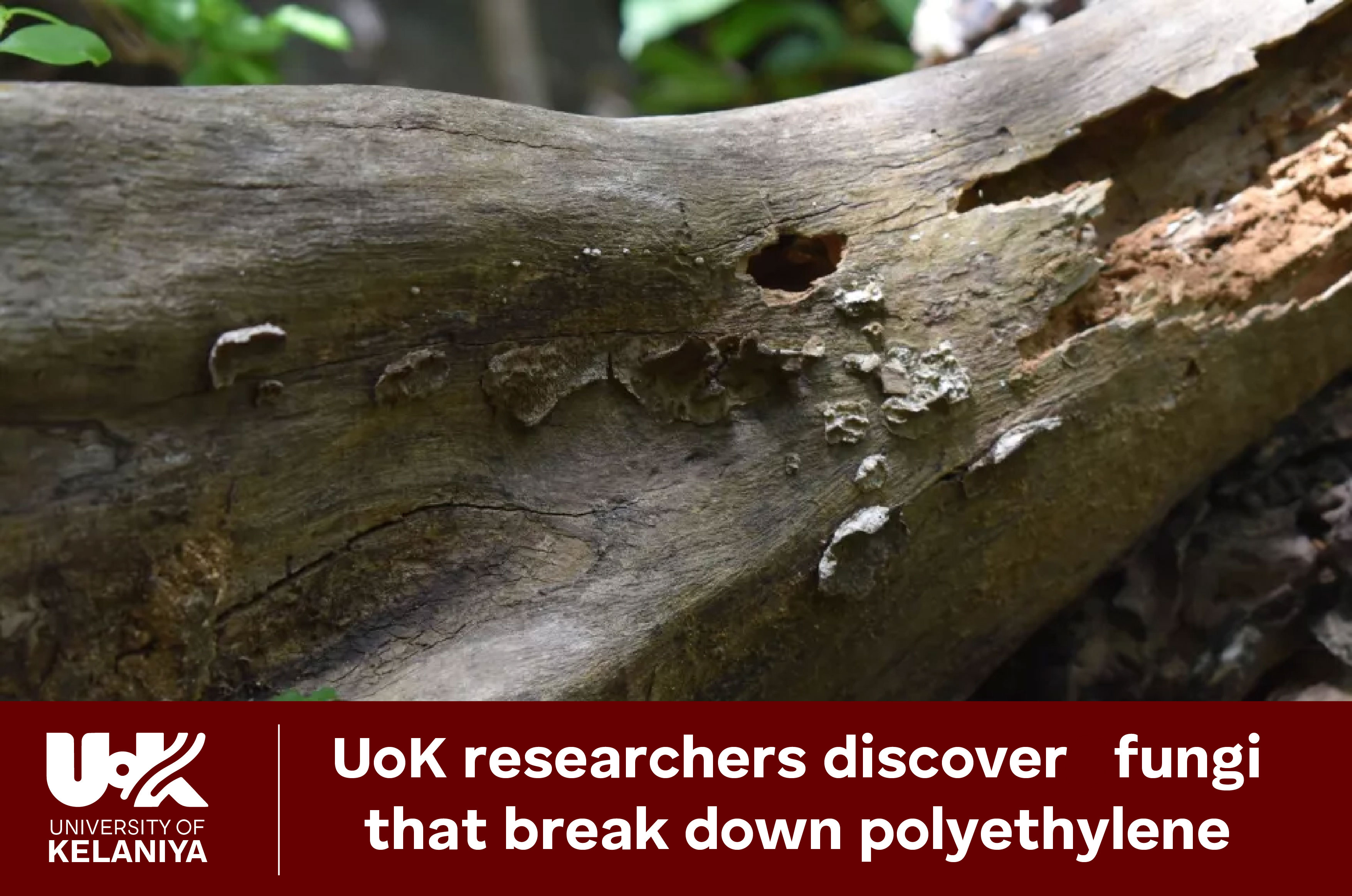UoK researchers discover fungi that break down polyethylene
- UoK News
- Posted On

A team of researchers from the University of Kelaniya and the University of Peradeniya have found a potential solution to plastic pollution using fungi.
The principal researcher of the study, Prof. Renuka Attanayake, said that "... fungi that can break down polyethylene, the most widely used plastic waste, could be a possible way to reduce plastic pollution". The study was published in the journal of PLoS One.
For their study, the researchers isolated 50 fungal samples from decaying hardwoods found in the Dimbulagala dry zone forest reserve in central Sri Lanka. Then, they divided the samples into two main experimental conditions: a dish with low-density polyethylene (a type of plastic), and a dish with both the plastic and wood. After 45 days, it was clear that the fungi consistently preferred wood to plastic, but in both experimental setups, particularly the dish with just plastic, the fungi broke down the polyethylene.
"We think that these organisms are metabolically flexible, I would say, and this may be an evolutionary advantage," Attanayake said. "[The fungi] had to survive in the environment utilizing whatever was available."
Though scientists don't yet know how the chemical pathways in the fungi change when they eat polyethylene, they do know that the white rot used some oxidizing enzymes to break down both the wood and the plastic.
To date, more than 430 species of fungi and bacteria have been found to break down plastic, according to Royal Botanical Gardens Kew in London. Scientists believe that identifying and replicating the enzymes these microorganisms secrete to degrade plastic could eventually help remove some of the 400 million tons of plastic waste produced each year, which often sits in landfills or overflows into the ocean rather than being recycled.
Journal Paper: https://journals.plos.
Read More: https://www.livescience.com/

